Humans
Sign up for our newsletter
We summarize the week's scientific breakthroughs every Thursday.
-
 Humans
HumansAn island grave site hints at far-flung ties among ancient Americans
Great Lakes and southeastern coastal hunter-gatherers had direct contact around 4,000 years ago, a study suggests.
By Bruce Bower -
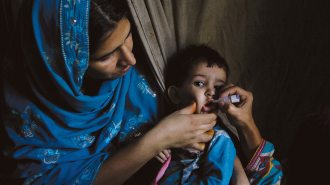 Health & Medicine
Health & Medicine50 years ago, polio was still circulating in the United States
The world has never been closer to eradicating polio, but the disease could come roaring back where vaccination is spotty.
-
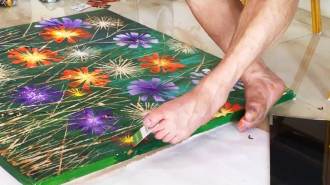 Humans
HumansArtists who paint with their feet have ‘toe maps’ in their brains
Brain specialization comes with toe specialization in people who use their feet for painting, eating and writing.
-
 Humans
HumansCulture helps shape when babies learn to walk
The culture in which a baby is raised can accelerate or slow down the development of early motor skills. Does it matter?
By Sujata Gupta -
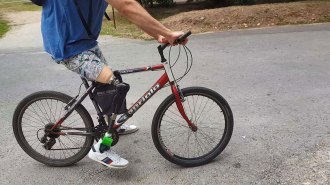 Tech
TechA new prosthetic leg that senses touch reduces phantom pain
A prosthetic leg that can sense foot pressure and knee angle helped two men walk faster and reduced phantom leg pain.
-
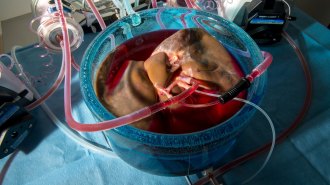 Humans
HumansSupercooling tripled the shelf life of donor livers
Cooling organs to subzero temperatures could help them last longer, making lifesaving transplants available to more people.
-
 Humans
HumansVaping is suspected in a fifth death and hundreds of injuries
U.S. health officials can’t yet point to a substance or device that’s behind a rising number of severe lung injuries and deaths tied to e-cigarettes.
-
 Humans
HumansThe longest Dead Sea Scroll sports a salt finish that the others lack
A newly discovered salty lamination on the Temple Scroll could help explain why the ancient manuscript’s parchment is remarkably bright.
-
 Humans
HumansDNA indicates how ancient migrations shaped South Asian languages and farming
Farming in the region may have sprung up locally, while herders from afar sparked language changes.
By Bruce Bower -
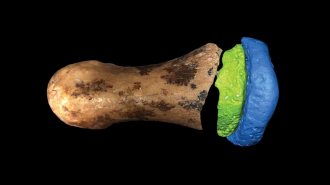 Anthropology
AnthropologyThis ancient Denisovan finger bone is surprisingly humanlike
Despite Neandertal ties, extinct hominids called Denisovans had a touching link to humans, a new study finds.
By Bruce Bower -
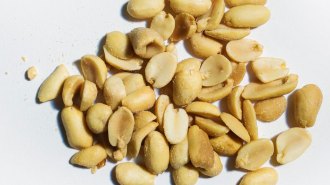 Health & Medicine
Health & MedicineLiquid mouth drops could one day protect people from peanut allergies
An immune treatment given as liquid mouth drops helped allergic children eat the equivalent of a few peanuts without having a reaction.
-
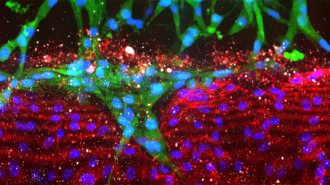 Health & Medicine
Health & MedicinePancreatic cancer tumors attack the blood vessels that deliver chemo drugs
Pancreatic cancer is nearly impossible to treat, but now we may know why. New research shows that the tumors destroy nearby blood vessels, making it harder for drugs to reach them.
By Alex Fox